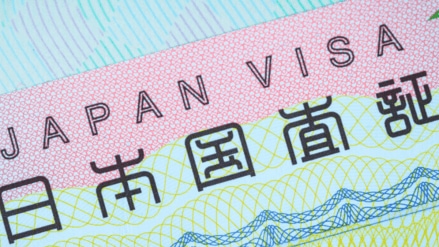Japan’s government is reportedly planning to raise fees for visas and residential status starting in fiscal 2026. The move comes as the number of foreign residents in Japan has grown in recent years, the Japan Times reported. Officials said the goal is to bring Japan’s fees closer to what Western countries charge.
Japan to raise visa and residency fees in 2026
Currently, foreign residents pay ¥6,000 (around $38) to extend or change their residential status. The new plan could raise this fee five to six times, to about ¥30,000–¥40,000 (around $190–$253), according to the report. People applying for permanent residency currently pay ¥10,000 (around $63), but this fee could increase more than tenfold, exceeding ¥100,000 (around $633). The fees will depend on how long the visa or status is valid.
Interestingly, these fees had just been raised earlier this year. In April, the extension fee increased from ¥4,000 (around $25) to ¥6,000 (around $38), and permanent residency went from ¥8,000 (around $50) to ¥10,000 (around $63), the first increase in 44 years. Along with foreign residents, inbound tourists will also be paying more.
The government will submit a bill to change the Immigration Control and Refugee Recognition Law during the regular Diet session next year. Money from the fee increase will be used to improve conditions for the growing foreign resident population and to deport illegal residents.
The fee changes are part of a ¥21.3 trillion economic stimulus plan approved by Prime Minister Sanae Takaichi’s Cabinet. Takaichi is known for her strict stance on immigration. To implement the hikes, the government must change the law that caps visa fees at ¥10,000, a limit that hasn’t been updated since 1981.
Comparing Japan’s residency fees to Western countries
The government wants Japan’s fees to match Western standards. For comparison:
In the US, visa renewal costs $420–$470. In Germany, fees are €93–€98 ($107–$112). The fee hike is expected to bring in tens of billions of yen. These funds will be used to improve services for foreign residents, including processing applications, Japanese language programs, and deporting illegal overstayers. Japan had more than 3.96 million foreign residents as of June, and over 70,000 illegal overstayers in July, according to the report from the Japan Times. Chinese nationals, the largest group of immigrants in Japan, will be among those most affected by the fee increase.
Japan’s visa fee hike
Japan’s Foreign Ministry is planning to raise visa fees next fiscal year to bring them closer to levels in Europe and the United States. If approved, this would mark the first increase since 1978. Currently, a single-entry visa costs ¥3,000 (around $19), while a multiple-entry visa is ¥6,000 (around $38).
For comparison, short-stay visas cost $185 (about ¥28,000) in the US and £127 (around ¥25,000) in the UK The government plans to use the additional revenue to manage overtourism and support other related measures.
Japan has reported a good 20% jump in international students compared with last year. As Western countries, especially the US, have tightened their immigration and foreign job policies, many international students are now looking at Japan as a better alternative.
